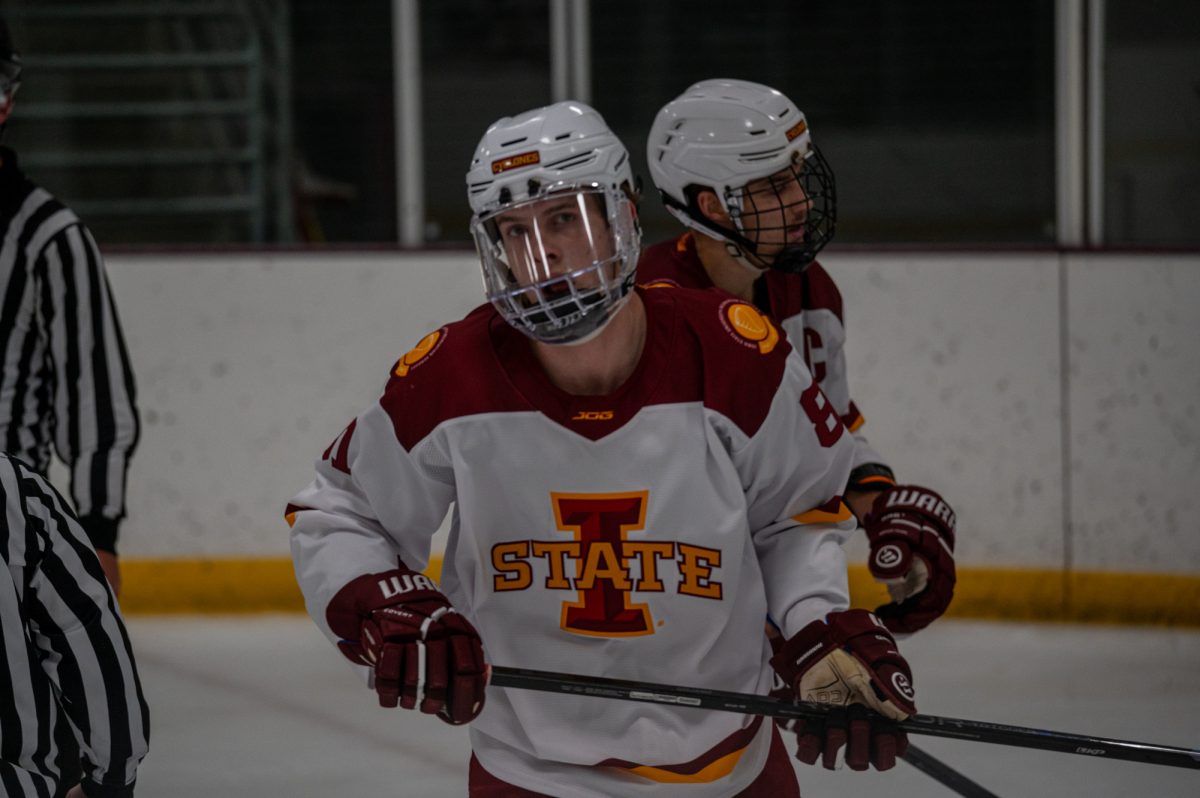COLUMN:Hitting home where it hurts
March 27, 2002
“Homeland Security” seems to be a fairly popular buzzword these days. People have been throwing it around like there’s no tomorrow. As a result of the Sept. 11 tragedies the United States has felt the need to heighten security, with good reason. This has affected different industries and areas of our economic livelihood. This includes the agriculture industry.
“How?” you might ask. Considering ag has no direct affect on our security. Or does it? If the definition of security includes a full stomach, the agriculture industry is much more involved than the average person would realize.
The U.S. government is concerned that terrorists might attempt to kill off our food supply by infecting our cattle herds with BSE, or Bovine Spongiform Encephalapathy. This disease is located in the spinal column and brain tissues. It is transmittable from animal to animal, usually through the feeding of bone meal to non-infected animals.
However, it has not been found to be transmittable to humans. In fact, if your cow had BSE you could still drink the milk from her; just don’t eat any of the meat around the spinal column, like the T-bone steak we all enjoy.
There is a similar form of BSE found in sheep, called scrapie. However, it has not been found to be transmittable to animals of different species. Thus the same is true; don’t eat any parts of the spinal column or brain tissue of sheep if it is found to have scrapie.
Another much more infectious kind of disease that plagues the cattle, as well as the pork industry, is foot-and-mouth disease. This disease is spread through the fluids of the sores that the animals form in their mouth, and on the skin between their hooves. This disease is so infectious that last year in Europe thousands of animal carcasses were piled up and burned so that the disease would not continue to spread. foot-and-mouth can spread over miles in a very short amount of time.
Before you jump to becoming an all-out vegetarian, realize that the United States has not had any reported cases of FMD since 1929 and has never had a confirmed case of non-controlled BSE. At this point in time the United States does not allow meat products from European countries, as well as live animals, to be imported across our borders. Not only does the United States have very stringent regulations, they also have developed a very efficient response plan should a case of BSE or FMD be found in our country.
President Bush has allotted $146 million to secure America’s food supply for the 2003 fiscal year. He feels that by enhancing the protection of our borders we will stop anyone who might be plotting to infect our animals from crossing them. Keep in mind that the United States has 7,500 miles of land and air borders with Canada and Mexico. Also 330 million non-citizens are admitted to the United States every year. On land, 11.2 million trucks and 2.2 million rail cars cross into the United States, all the while 75,000 flagships make 51,000 calls in U.S. ports annually. Now, my question is “How are we going to stop one person from infecting our food supply?”
Believe it or not it would only take one person to infect thousands and thousands of animals needed to feed America’s people. If that person really wants to poison our food supply they are going to find a way to do it. No amount of money will stop them.
Excuse my sounding like the Grim Reaper, but this is a reality we all have to face. Granted you cannot blame President Bush for spending that amount of money on increased protection. We can’t just stand by and let this happen.
What I want to know is what these increases will really do to protect America’s food supply? Are we doomed to live the rest of our lives as vegetarians? I think not. America will make it through just like we always do. The nation’s food supply will live on, as will its citizens.
Danelle Zellmer is a sophomore in public service and administration in agriculture from Atlantic.






